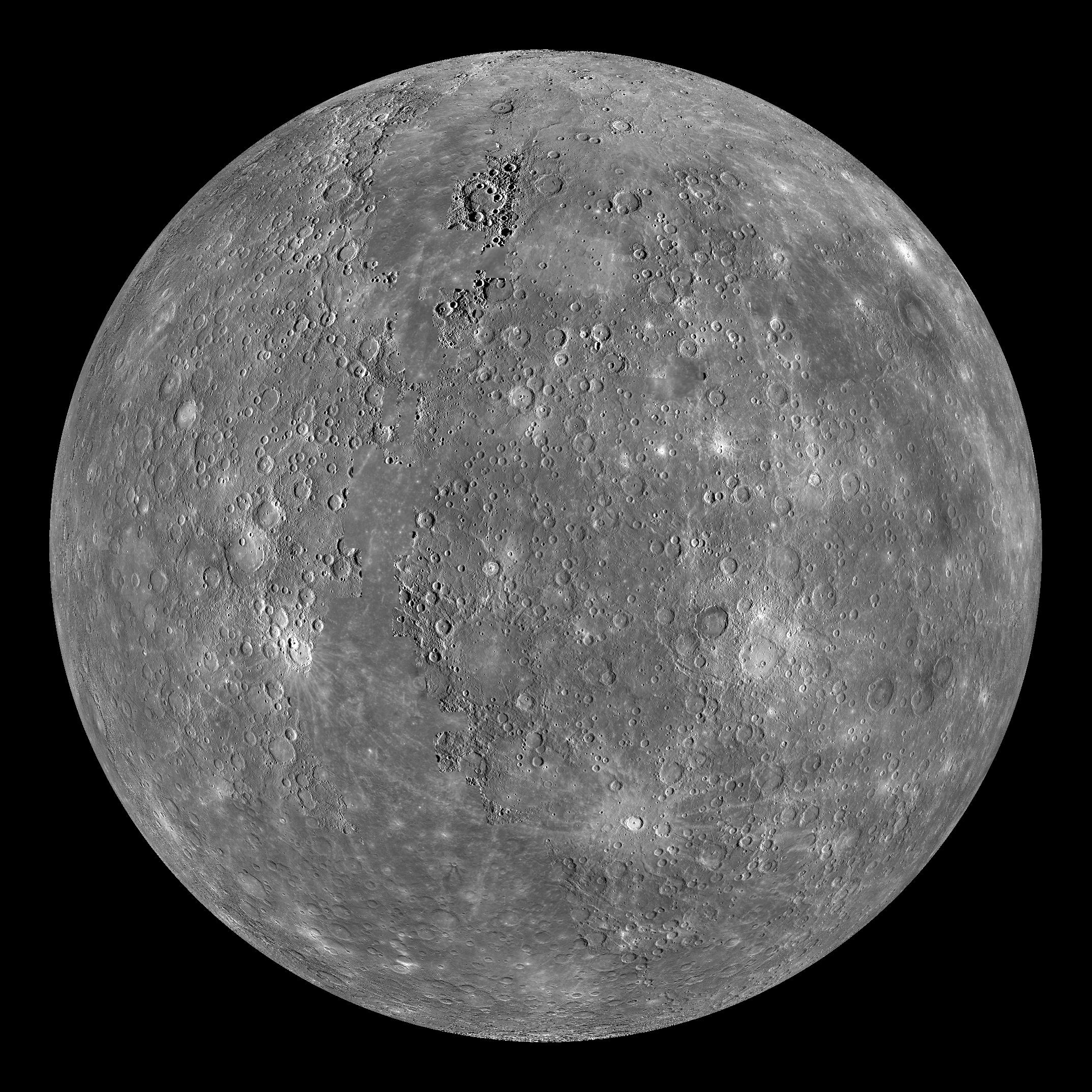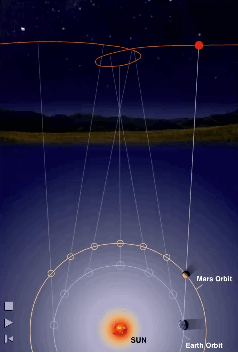Is Mercury in Retrograde AGAIN?!

Computer giving you trouble? Must be Mercury in retrograde. Or at least that’s what SO many people say, jokingly or otherwise, when some piece of technology is going haywire. How did this bit of astrology make its way into our modern technological discussions?
Astrology, in all its forms, generally asserts that the motions of the bright things in the sky have some effect on our daily lives, beyond mere sunlight warming us or the changing seasons bringing new crops, though I suspect ancient astrologers considered that quite important as well. So let’s break this down using what we know of astronomy, shall we?
Mercury is one of the planets known to the ancients since it is visible to the naked eye. The term “planet” comes from the word “wanderer” as the planets moved independently of the seemingly fixed positions of the stars on the great celestial sphere. In fact, the Moon and the Sun were termed “planets” in this sense, but the Earth was not. It’s no wonder the definition was a bit confusing until the International Astronomical Union put its collective foot down on the definition in 2006. (Sorry/not sorry, Pluto.)
However, most people, except maybe Sherlock Holmes, know that the Earth is a planet that goes around the Sun, as do seven other planets. The innermost of these is Mercury. Because it is the innermost in the Solar System, it never strays very far from the Sun in the sky, so is only visible low in the sky near sunrise or sunset. So, it’s not terribly likely that you’ve seen it without trying, but it is a pleasant sight if you do.
Astronomers today, as the astrologers of old, track the motions of the planets in the sky from night to night and week to week. We don’t do this for any scientific reason necessarily, as these motions are already well known and calculated. But it’s still nice to notice the change over time, as many casual observers would not, and be aware of where the planets are in the sky at any given time for a bit of “emergency astronomical outreach” on a clear night. (Hey, you never know.)
If you went out every night and plotted the position of the planets against the background stars, you’d generally see them moving across the sky from west to east, and we call that prograde motion. Sometimes, however, they move from east to west, and then it is called retrograde motion. This caused a bit of a problem for geocentrism when Mars, Jupiter, and Saturn did loop-dee-loops around the sky, though Ptolmey and his followers made a valiant effort. However, the heliocentric view of the Solar System makes the reason for that motion pretty apparent, at least with a helpful gif.
Now, for planets inside the Earth’s orbit, Mercury and Venus, there are pretty significant swings between prograde and retrograde motion. Again, seeing the motions sped up from a point of view outside the Earth might help.
But basically, all you need to know of that sometimes, Mercury seems to move eastward (prograde) and other times westward (retrograde) and it all makes sense due to solar system geometry.

The planetary motions are very well known, thanks to physics. So it’s relatively easy to keep track of when Mercury, or any other planet, is “in retrograde” or moving westward across the sky from night to night. So, when someone asks if Mercury is in retrograde, that’s a legitimate astronomical question. The reason why they are asking, however, often has little to do with physics in astronomy.
I have often heard that line when someone’s technology is on the fritz which, frankly, seems to be always. Though sometimes said in jest, it is more than often said by someone who does subscribe at least in part to astrology. So what does Mercury being in retrograde mean to astrologers? I decided to hit up some basic resources and see what it’s all about.
The Farmer’s Almanac shows the dates of retrograde for this year and calls this backwards traveling an “illusion.” Umm… well an illusion isn’t the best descriptor, but if you’re trying to say that Mercury moves backwards in the sky but not in its orbit in reality, okay… I’ll let it go. It then advises, “When Mercury is retrograde, remain flexible, allow time for extra travel, and avoid signing contracts.” Considering that Mercury is in retrograde for about three months out of the year, that could mean a bit of lost productivity. And yet a Google search for “Mercury retrograde dates” tells you right up front to not travel or sign contracts. Again, my work schedule probably won’t allow for traditional advice.

Mercury goes retrograde February 6 2014 and the traditional advice is “Don’t travel, Don’t sign contracts.”
Mercury was the Roman messenger god, or in control of communication. So in that way, things associated with communication, phones and computers and the like, get a bad rap while Mercury is in retrograde. It goes beyond just the tech, though. People are warned to be careful in relationships, since we all know that involves a good bit of communication. I’m not sure where contracts fit in to that, but in general, people are warned against making plans and told to look out for all kids of mishaps. The level of the effect, of course, depends on the sign under which you were born.
Now, many of us here don’t give much, if any credence to astrology. After all, astrology doesn’t hold up against scrutiny, and if we’re talking about physical effects, your mother’s obstetrician had more of a gravitational influence on your birth than anything in the Solar System.
So why is this particular term still used so widely?
To be honest, I haven’t been able to figure it out just yet. It may be that Mercury spends so much darn time in retrograde, that it’s easy to make a correlation. Or, maybe because Mercury was a messenger god, we assume he’d want to mess with our electronic communications. And to be honest, it’s really hard to search the history of such a term in an objective way on an internet full of pro-astrology sites in the spare time allotted to this full-time postdoc. Even on a search filtered only to contain skeptical websites (thanks to Tim Farley) I can only find conjecture as to the origins of this ever so popular belief. I would love to hear further conjecture on the popularity of this term in the comments.
For all the reasons that astrology doesn’t seem to hold water, I think it is fair to say that this particular phenomenon doesn’t actually happen. The planetary motions DO have SOME effect on humanity however, at least for those of us who plan our observing sessions around the times when our favorite planets are visible in the night sky. Just don’t blame Mercury the next time your telescope drive freezes up.






In Lakota culture, even the idea that the stars would try to send you a message is seen as…the height of arrogance. (Also, why all those hippie ‘Native American zodiac’ things are bullshit.)
(This gets particularly funny if you consider that some of the stars, as in actual stars, not planets, have already died thousands of years ago, but we’re still getting light from them.)
http://xkcd.com/1342/
If you can see it, it is very unlikely to be thousands of light years away.
As the lifetimes of stars are typically in billions of years, a star a few thousand light years away is very unlikely to have died during that short period of time.
However, if you CAN see it a few thousand light years away, then it is a very luminous star, and those have lifetimes on the order of ten million year, and so is much more likely to have died in a random few thousand year interval. (And they die suddenly, as supernovae, where a normal star’s death is drawn out over (tens of?) thousands of years as the formation of a planetary neubla.)
My own conjecture for the popularity of blaming tech things on this is that the explanation came to hand. There is a long history in hacker culture of blaming failures, in jest, on cosmic phenomena. It goes back to a time when actual cosmic phenomena (“cosmic ray” particle radiation) were actually suspected for causing a type of very pernicious error. (It was actually terrestrial particle radiation, from trace radioactive elements in the computers’ own material.) I expect people used to taking that way just heard somebody mention the mercury retrograde bit and latched on to it.
That’s interesting. I never heard that one before! Though I immediately thought of this: http://xkcd.com/378/
Yep. Some examples of cosmic tech-failure jargon:
http://www.catb.org/jargon/html/C/cosmic-rays.html
http://www.catb.org/jargon/html/S/sunspots.html
http://www.catb.org/jargon/html/P/phase-of-the-moon.html
I’ve never heard the retrograde-Mercury thing, but I have heard of programs being described as ‘phase of moon dependent’, meaning they act differently depending on unknown circumstances. Possibly inspired by this usage, the game ‘nethack’ was written to be literally phase of moon dependent: your initial luck score depends on the phase of the moon when you start a game.
http://www.catb.org/jargon/html/P/phase-of-the-moon.html
Never heard that before.
I’d never heard this before, but I LOL because my computer suddenly started overheating in February and I had to send it in for repair. Now it is all explained!
I’ve been having a great month.
STAY IN RETROGRADE, Mars. For my sake.
We use images and metaphors and figures of speech and idioms all the time without thinking they’re “real”. “Mercury retrograde” conveniently packages a cluster of circumstances, flavors of coincidence, and feelings that an awful lot of people relate to. I certainly use the expression.
The twelve symbols of the “zodiac” have been transmitted pretty much intact through millennia of now extinct cultures to ours. There must be deep emotional resonances for that to have happened.
It’s all confirmation bias. Nothing more, nothing less.
This is all nonsense. The stars and planets have absolutely no effect on electronics or computer programs. As long as you sacrifice a goat in the correct manner, all programs and hardware will eventually work (for sound technical reasons, of course.)
I know this is an old topic, but I had to share this. I actually had the service department at my local car dealership tell me that because Mercury is currently in retrograde, that is causing the electronics in my car to go on the fritz, and since this is an ‘external cause’ they cannot do any further troubleshooting/repairs at this time.
I have never been more insulted. I will definitely not be going back to that dealership.
I’ve been intrigued by the symbols of the zodiac for a long time. Please note, “the symbols”. Everyone recognizes the twelve houses, and they’ve been unchanged for a few thousand years.
So some of the circumstances or qualities they represent must resonate pretty deeply with people. I talk about the “full moon” on days when people are being extra weird, and sometimes say “Mercury must be retrograde” when communications and coordination are especially bad or missing. I don’t believe that the paths of the planets through the sky mean squat, but it’s a useful shorthand for a feeling, or kind of day, that everyone knows and recognizes.